May 5, 2024 | 13:52 GMT +7
May 5, 2024 | 13:52 GMT +7
Hotline: 0913.378.918
May 5, 2024 | 13:52 GMT +7
Hotline: 0913.378.918
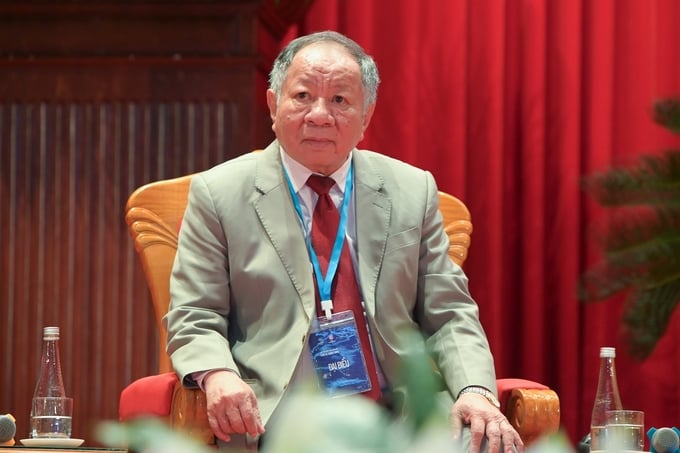
Mr. Nguyen Huu Dung, Chairman of the Vietnam Mariculture Association. Photo: Tung Dinh.
Within the framework of the Sustainable Mariculture Development Conference – Insights from Quang Ninh, Minister Le Minh Hoan chaired a seminar on the Potential and Challenges of Mariculture.
Presenting on several bottlenecks in Vietnam's mariculture industry, Assoc. Prof. Dr. Nguyen Huu Dung, Chairman of the Vietnam Mariculture Association, identified seven challenges that state management agencies must address to the mariculture community.
Firstly, Vietnam currently lacks marine spatial planning. This is the most crucial legal foundation, which allow local governments to address significant challenges in mariculture planning.
Secondly, licensing procedures for mariculture and marine area allocation are unnecessarily complex. Failure to allocate long-term marine areas undermines the confidence of businesses, cooperatives, and investors in mariculture.
Thirdly, there is a lack of standards and technical regulations for mariculture. The sustainable development of mariculture requires essential standards as the basis for production development.
Fourthly, there is a lack of inspection agency for mariculture facilities and equipment.
Fifthly, there is a lack of insurance for mariculture activities.
Sixthly, there is a lack of policies to support mariculture development.
Seventhly, there is a shortage of skilled human resources in mariculture.
Mr. Nguyen Huu Dung emphasized that these challenges primarily fall under the responsibility of state management agencies. As a result, state management agencies must promptly address these issues to the business community, cooperatives, and mariculture farmers.
According to the Chairman of the Vietnam Mariculture Association, Vietnam is currently undergoing a transition from labor-intensive mariculture to industrial mariculture, from nearshore to offshore mariculture, from spontaneous activities to strict management, from single-species to integrated multi-species mariculture, from an independent sector to an integrated economic sector.
"This new journey for Vietnam's mariculture is only beginning," Mr. Nguyen Huu Dung stressed. As a result, Vietnam's mariculture industry is facing numerous difficulties and challenges. Namely, the transition from labor-intensive mariculture to industrial mariculture requires transferring the subject of mariculture from individual fishermen to specific legal entities such as businesses, cooperatives, who will bear management responsibilities in many aspects.
Additionally, this process will include the transition from outdated technologies that impact the environment to advanced environmentally friendly technologies, from self-managed fishermen to established supply chains for sustainable development.
Secondly, the spatial shift as the location and method of mariculture moves from nearshore to offshore areas, will also pose a challenge. Experience from countries with advanced mariculture such as Norway indicate that the transition is an inevitable process, and Vietnam must follow this trend in order to move towards mariculture in offshore areas and islands. However, this is a distant goal that requires significant legal changes. Accordingly, the issues of mariculture licensing, limitation of mariculture density, origin traceability, environmental impacts, must be carefully researched and calculated.
With regards to the aforementioned difficulties, the model and approach in Quang Ninh province have fundamentally resolved a number of bottlenecks. However, to increase the scope of the Mariculture Project, there are multiple issues to be discussed regarding consultation and determination to advance into open waters; as Minister Le Minh Hoan have stated, "What comes next after Quang Ninh?"
The Chairman of the Vietnam Mariculture Association proposed an adjustment to the current marine area allocation fee. Accordingly, the current fees ranging from 4 to 7 million Vietnamese dong per hectare per year are high compared to the risks which farmers have to bear. Secondly, the difficulties in assessing the environmental impact of mariculture are causing significant losses to farmers.
Translated by Nguyen Hai Long
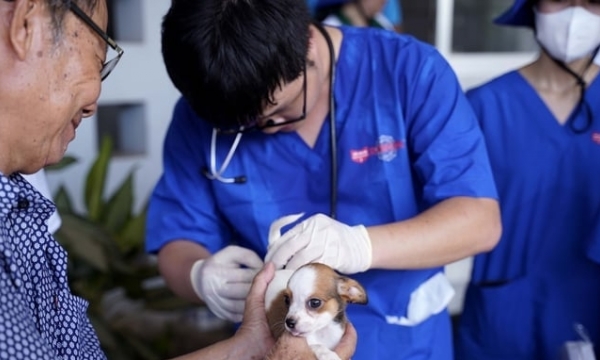
(VAN) Pet owners in Long An province exhibit indifference and a lack of understanding regarding rabies. They maintain the misconception that pet dogs and cats are immune to the disease.
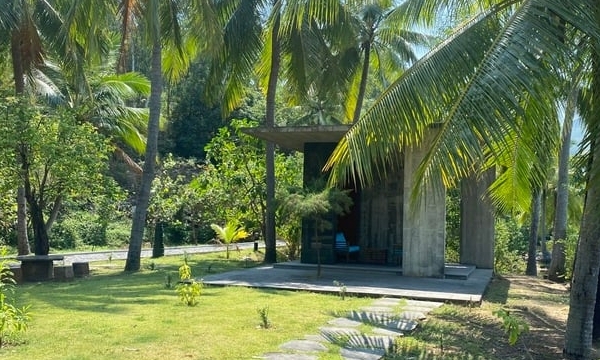
(VAN) The STAR-FARM project is funded by the European Union and implemented in the provinces of Dong Thap, Kien Giang and Tra Vinh, with a total investment of 4.2 million Euro.
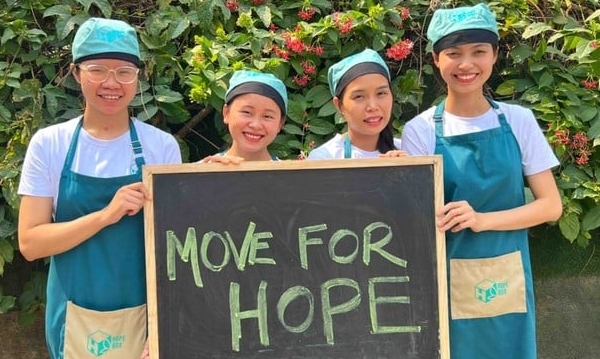
(VAN) The ecosystem and social impact business organizations (SIBs), although still modest in number, is very diverse and dynamic, they have been creating positive changes in many aspects, contributing to building a sustainable future
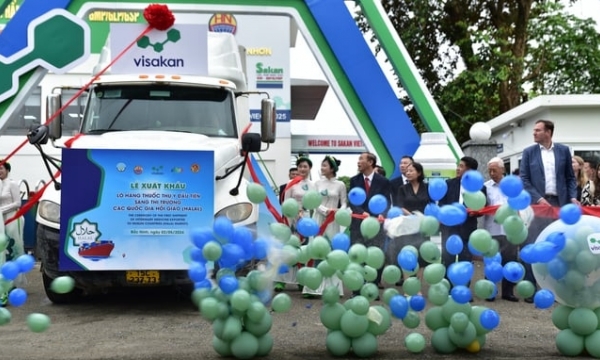
(VAN) Visakan Biotechnology Development Investment Company, a subsidiary of Hung Nhon Group, recently held a ceremony to commemorate its first export shipment of veterinary medicine to the Halal market.
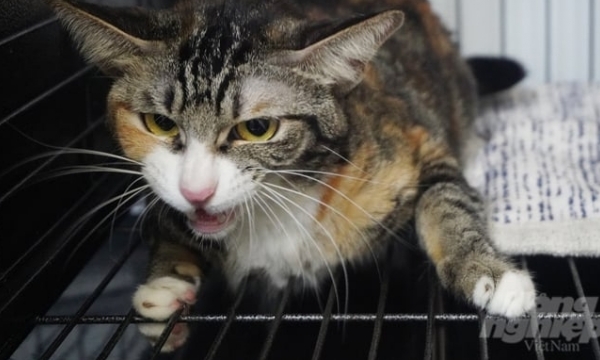
(VAN) If temporary regulations on dog and cat ownership are approved, Ho Chi Minh city will pilot the implementation of microchipping for dogs and cats in several designated areas within the inner city.
/2024/05/02/5303-5730-6-185654_281.jpg)
(VAN) Dr. Pham S, Vice Chairman of Lam Dong Provincial People's Committee: 'Lam Dong has attracted 80 FDI enterprises and 1,550 domestic enterprises to invest in agricultural development, with 150 agricultural cooperatives applying high technology'.
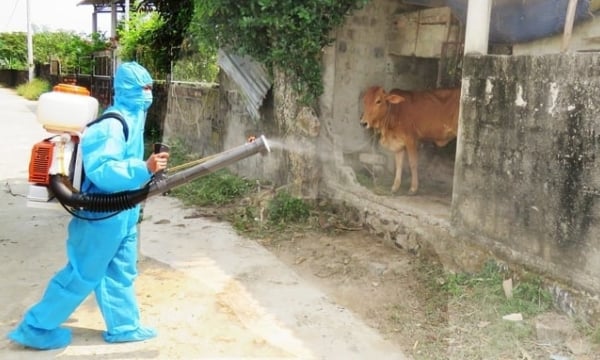
(VAN) An outbreak of Lumpy Skin Disease has occured across four districts in Quang Binh province, prompting local veterinary forces to strengthen prevention efforts.